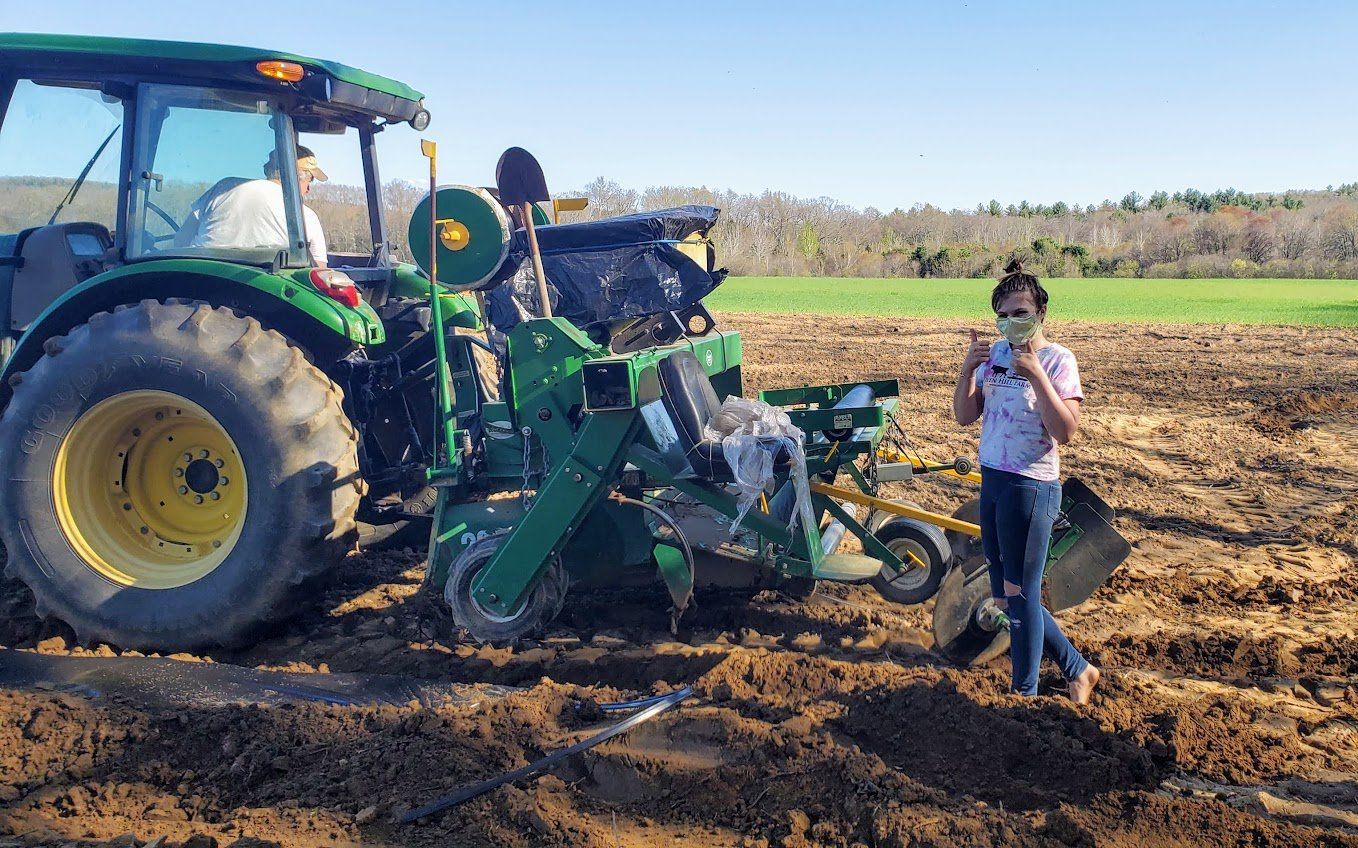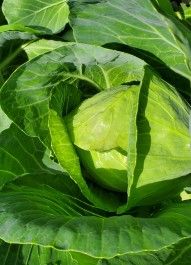We hope you had a wonderful Independence Day! We are grateful for the freedom we have to farm in peace and security, using methods we feel are best for the environment as well as the health and safety of our farm staff and members. We deeply appreciate those who have fought and sacrificed in order to obtain and defend that freedom.
Tomatoes are starting to set their green fruits and the sweet potatoes we will harvest at the end of summer have been weeded out by hand and are starting to vine out and set up roots. The first round of sweet corn is just past knee-high and the cabbages and onions are filling out nicely. The summer squash and cucumbers are off to a slow start, as the tiny nibbles they suffered from the cucumber beetles and squash bugs that hang out in the soil over the winter allowed some plants to succumb overnight to bacterial wilt, a plant disease that will flatten an otherwise healthy plant within hours. There is no organic solution to the squash bugs, we have to just relocate the next planting.
 But not to fear, we are planting more squash and cucumbers in a different field that has not had squash or melons in it for three years, so there should not be the same pest pressure and we will be back in full swing in a few more weeks.
But not to fear, we are planting more squash and cucumbers in a different field that has not had squash or melons in it for three years, so there should not be the same pest pressure and we will be back in full swing in a few more weeks.
One of the challenges that comes with the heat and recent rain that we have had, is that the weeds start growing quickly along with the vegetables. In organic farming, we have several methods of weed management, including mulch (which you will hear more about in future newsletters,) hand weeding, flame weeding, and mechanical cultivation.
When using mechanical cultivation, we must be careful not to introduce new weed seeds from deeper levels (more than 2 inches) of the soil when pulling out the emergent weeds. One of the best tools we have to accomplish this shallow cultivation is the basket weeder (the yellow parts) shown below. 
We use this tool effectively on a wide variety of crops, particularly beets, broccoli, radishes, turnips, spinach, and carrots. Another neat tool we have invested in is another kind of finger weeder that is towed behind a tractor and steered by the rider to precisely pull the weeds in the rows and along the edges of the plants. This works well of corn and carrots too.

We also have used solarization on smaller plots of land, where we cover the soil with a layer of plastic and allow the heat and light of the sun to "cook out" the existing weeds and weed seeds. At the herb garden at the Suffield farm, we used boards and plastic to prepare some of the beds for planting and it seems to have been pretty successful. We are also grateful for the help of Master Gardner (and long-term CSA member) Ann Kelly, who helped us clean and plant the beds this year. Ann will periodically be available while working at the herb beds to answer any of your gardening and herb related questions!


In another week or two, we should have basil available for snipping, along with the mints, oregano, chives, thyme and tarragon that are available for pick-your-own harvesting. This year, it's best if folks bring their own clippers and clean hands, and we ask for folks to stay in a single family unit at each herb bed, to maintain safe social distances.
In the coming weeks, we will continue to have a variety of greens, and soon some beans as well as more summer squashes and eventually, cucumbers. Greens are fantastic for your body, particularly at this time of year, but if you find yourself overwhelmed by greens (or anything else,) start blanching and freezing them to use in the winter months.
The farm Week 3 Pinterest board is found here


.jpg)


